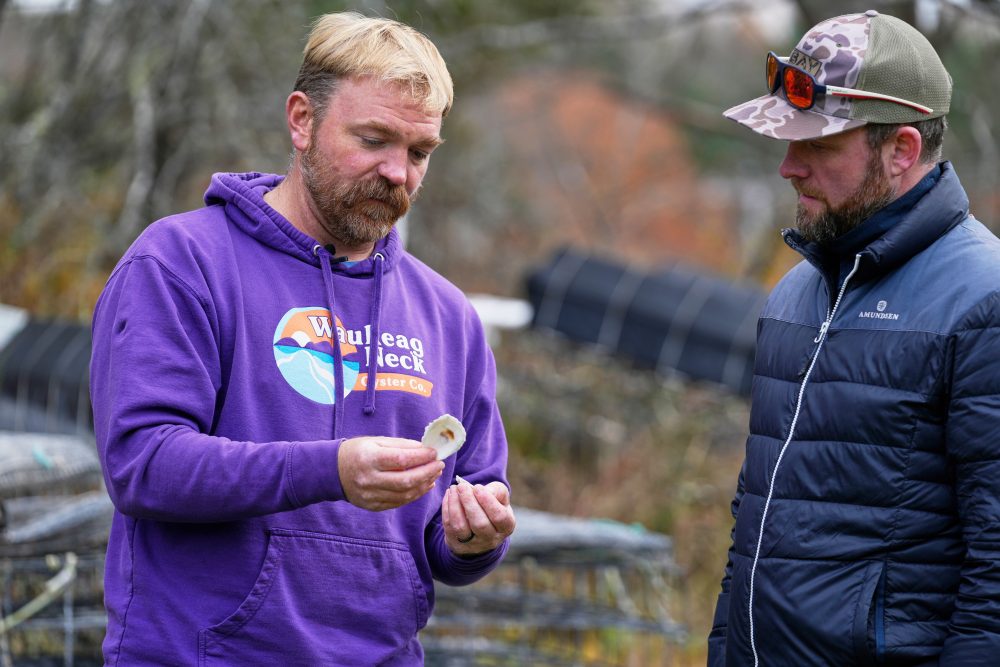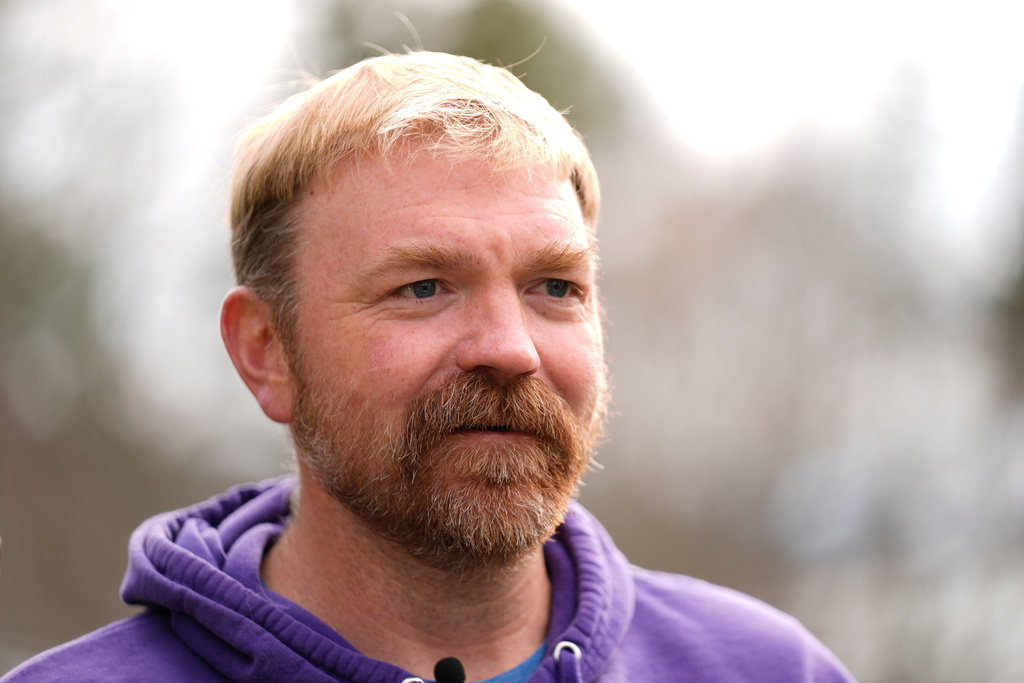
WINDHAM — In his 34th, and likely final, town hall of 2025, Democratic U.S. Senate candidate Graham Platner said his campaign is “not just about a Senate seat,” and he plans to stay involved in politics even if his effort is unsuccessful.
“Because what I want to fight for in Washington, D.C., what I want to build, is gonna take way more than one single Senate seat,” Platner told a crowd of more than 100 people gathered Saturday at the Windham Veterans Center.
Since he announced his candidacy in August, the 41-year-old combat veteran and oyster farmer from Hancock County has filled gymnasiums and other gathering spaces across the state with Democrats hungry for a new voice. Even a couple weeks of turbulence over his old social media habits and a regrettable tattoo has done little to stop his campaign’s momentum.
But Platner said even if he doesn’t win the Democratic nomination over Gov. Janet Mills and go on to defeat five-term incumbent Sen. Susan Collins, he’s not going anywhere.
“This for me is an organizing project,” he said, highlighting the 12,000 volunteers who have registered with his campaign so far. “Whether or not we win, the organizing needs to remain. And whatever movement we can build here needs to continue moving forward. And what my role looks like in that, I honestly don’t know.”
Platner addressed dozens of attendees on Saturday, delivering a 30-minute stump speech and taking questions for another half hour. His campaign appears to be shifting its focus to gathering enough signatures to qualify for the ballot and will kick off the effort with a week of action events across the state beginning on New Year’s Day.
Responding to a question from a self-identified immigrant, Platner took aim at President Donald Trump’s aggressive immigration enforcement and suggested “people need to go to prison.”
“I want to drag every single ICE agent that’s been wearing a mask in front of a Senate subcommittee, make them take their mask off, and explain to the American people what the hell they’ve been up to,” he said. “Organizations that are used to kidnap Americans are not organizations that should exist in the future.”

Platner also touched on familiar themes, expressing support for universal health care, taxing billionaires, preserving Social Security by removing a cap on taxable wages, clawing back war powers from the presidency, enshrining in federal law a women’s right to choose and investing in education rather than military campaigns.
But those priorities came with an important caveat.
“I’m not going to be able to do that,” he said. “As a junior senator from Maine, I don’t get to go to Washington, D.C., and make all of that happen.”
Platner’s campaign has been steamrolling across the state since he launched it in Portland on Labor Day at a rally with Vermont Sen. Bernie Sanders, a progressive icon, that drew about 6,500 people to the Cross Insurance Arena.
Platner is vying for the Democratic nomination against Mills, a two-term incumbent governor, and several other Democrats. The winner will take on Collins, who is seeking her sixth term to a seat viewed as one of the Democrats’ best pick-up opportunities next fall.
Last month a series of disclosures over Platner’s internet history, including racist, homophobic, misogynistic and anti-police posts on Reddit, plus a tattoo of Nazi imagery, threatened to derail his campaign. But he apologized for the past comments, saying he was struggling with isolation, undiagnosed post-traumatic stress disorder and depression from his military service. He also covered his tattoo shortly after disclosing it on a national podcast.
Those controversies were followed by some departures from his campaign, but on Saturday, neither Platner nor anyone in the audience brought them up.
Instead, he spent time outlining his vision for building a grassroots social movement — one that can challenge the traditional power structures of the presidency, Senate, House of Representatives and corporate interests from the outside.
The way to do that, he said, is to leverage his grassroots volunteers, which he called a secondary power. He called on activists to “impose costs” and “shut things down” to fight against powerful interests.
“If we can’t impose costs, then they’ll never listen to us, because they won’t care,” he said.
“In the future, when we’re trying to vote on something like Medicare for all, if there are other members of the Maine delegation that don’t want to come along, we need to be able to impose costs,” he continued. “We need to be able to turn people out to flood their offices. Frankly, I want people to follow them around and don’t let them have a public dinner without getting yelled at. Because that’s power. That’s real power.”

We invite you to add your comments. We encourage a thoughtful exchange of ideas and information on this website. By joining the conversation, you are agreeing to our commenting policy and terms of use. More information is found on our FAQs. You can modify your screen name here.
Comments are managed by our staff during regular business hours Monday through Friday as well as limited hours on Saturday and Sunday. Comments held for moderation outside of those hours may take longer to approve.
Join the Conversation
Please sign into your CentralMaine.com account to participate in conversations below. If you do not have an account, you can register or subscribe. Questions? Please see our FAQs.